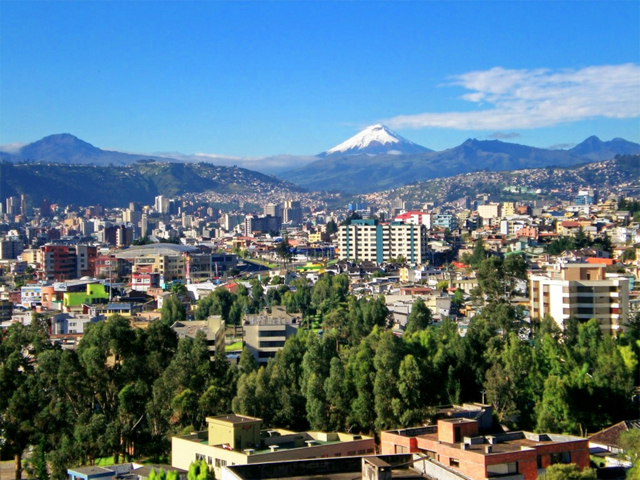Habitat III will have important things to say about urbanisation, but there can be little confidence it will have an impact in Australia.

Quito, Ecuador. PHOTO TedyTravel.com
It may seem obvious that most people live in cities, but it’s actually been true for less than a decade. Humanity has nearly always been a rural species.
In 1800 just three per cent of people lived in cities, and it was still only 14 per cent in 1900. Cities remain a novelty in the scheme of things, and we’re still learning. For all its magic moments city life is full of mistakes, mishaps and misery.
When I was a boy (living in the country), we thought that technology could bring the urban utopia everyone dreamed of, with all the blessings of living en masse and none of the pitfalls.
It did bring benefits, but Dickens’s 19th-century London lives on in cities everywhere, in the form of isolation, polarisation and inequity. Such human factors are the focus of a big international meeting in October, along with some very 21st-century issues, disaster and climate resilience.
There have been just two previous Habitat conferences, at 20-year intervals. This year in Quito, Ecuador, some 25,000 politicians, mayors, academics, planners, community advocates, activists and business people will put together a new UN urban agenda for coming decades.
How cities look – the grand vistas, monuments and planning schemes so beloved of developers and politicians – is unlikely to figure on the Quito agenda. The focus will be on how cities can better serve the needs of all inhabitants, rich and poor alike.
Its starting point will be 17 landmark “Sustainable Development Goals”, a 15-year plan signed a year ago by Australia and other UN member nations. Number 11 of these goals aims to “make cities and human settlements inclusive, safe, resilient and sustainable.”
“Urban ethics” are a big talking point, centred on social inequity. In poorer countries, vast and rising gaps between poor and rich have resulted in one in three people living in a slum while the rich, with government support, turn once-public land into gated communities.
Inequity, exacerbated by harsh treatment of intruders caught in gated suburbs and the touting of slum clearances as “developments”, threatens a city’s social fabric and economic viability.
How cities confront another threat to sustainability, climate change, is also an equity issue. Rich people have resources to fall back on when extreme weather or rising seas threaten a community, but the less well-off are entitled to believe that authorities will look after their interests too.
For all its talk about city development, the Turnbull government played no role in shaping Habitat III. Similarly, despite claiming a credible climate policy it’s chosen to remain silent on that topic, which may have opened a door for city administrations to do likewise.
I’ve written before about local governments, including some in Tasmania, working towards a low-carbon future. Adelaide, Canberra, Melbourne and Sydney administrations are trailblazers.
But some councils may be starting to follow the say-nothing, do-nothing lead of Canberra and Hobart. For instance, it’s disappointing that despite laudable past efforts to come to grips with sea-level rise, Clarence City Council’s just-released 10-year strategic plan barely mentions climate.
Words are just words. We always need to ask, how are high-minded proposals going to translate into action? How will Habitat III, for example, change mindsets of businesses and professions that feed off urban development, and how will it help improve the lives of city people?
The cynical view is that all strategic plans, from local government all the way up to the Sustainable Development Goals, Habitat III and the 2015 Paris climate summit, are just devices to help leaders feel good while avoiding any solid commitments.
According to this view, while ordinary people may feel they’re being represented in these processes, and while governments often invite comment on their plans, public thinking that runs counter to a chosen direction is quietly put aside and ignored.
But government should not be about self-interest, and the rest of us, armed with those high-minded international declarations, are not without power. If ethical urbanisation – ethical anything – is ever to get its day in the sun, we need to ensure the people we elect feel that power.
